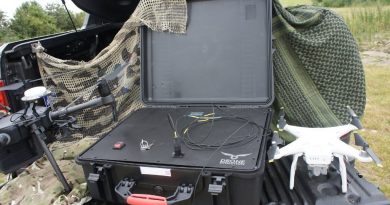► SCD to Lead Israeli National Consortium on Next Generation Smart Imaging Technologies
9 September,2019. SCD ‒ a global leader in the development and manufacture of a wide range of cooled and uncooled infrared detectors and high-power laser diodes ‒ will lead the Israeli national Smart Imaging consortium, supported by the Israeli Innovation Authority (MAGNET Consortium Program). Other members of the Consortium include Elbit Systems, the Technion, Bar Ilan and Ben Gurion Universities.
The main goals of the consortium are to develop and bring to market innovative imaging technologies for vision-based applications such as autonomous systems. The consortium will develop sensors with emphasis on innovative digital Read Out Integrated Circuits (ROIC), simulation capabilities, detection and tracking of fast dynamic events, and the classification technologies needed for defense, security and commercial systems.
The project is planned for 3 years in 2 phases. The first phase will be performed over an 18-month period, budget has already been approved and program already initiated.
The concept of initial processing in the focal plane at the ROIC level is actually taken from human visual systems. These are known for both excellent spatial sharpness and high temporal resolution. Dual focus on “sharpness” and “speed” is made possible through various processing streams that are already carried out in the retina.
Similarly, in the Smart Imaging consortium, capabilities will be developed that will allow initial processing at the detector and ROIC level for various sensor types, focusing on special processing technology at the pixel level. This processing will be accompanied by the deep neural network based algorithms for classification of events at the edge sensor level. These developments will solve the communication bottleneck from mega-pixel edge sensors to the processing cloud by using smart information extraction.
According to Dan Slasky, CEO at SCD, “In recent years, cameras have become the main tool for data acquisition and processing in a growing range of applications, including autonomous vehicles, drones, robots, automated production lines, smart cities, traffic management, aircraft systems, security systems, and more. They all use cameras as the main input source, and in many cases, use multiple cameras. These systems process the video, make decisions, and produce an appropriate response.”
“The Smart Imaging consortium”, he added, “will offer a unique solution and be a game changer for these systems. The solution, based on sensors and systems, apart from the video image they produce, will include additional capabilities for detecting events and analyzing images, thus providing an array of useful and relevant information.”
DSEI 2019, September 10-13, London, Israel Pavilion, Stand S6-120


